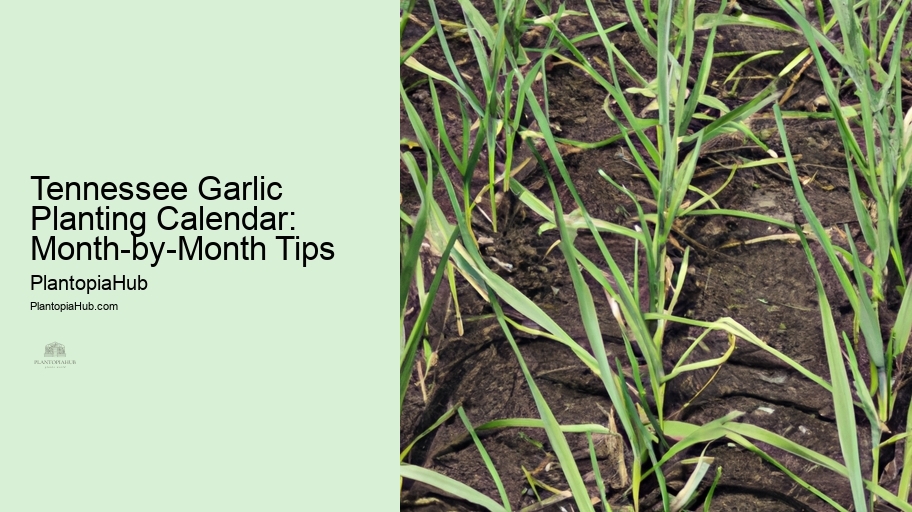

To maximize garlic yield in Tennessee, follow these expert tips and techniques. Plant garlic in well-draining soil with full sun exposure, ensuring proper spacing and planting depth. Provide consistent moisture and fertility throughout the growing season.
Additionally, trim garlic scapes to divert energy to bulb development and remove any competing weeds. Harvest when the lower leaves turn yellow but still have some green remaining. Cure and store your garlic properly for long-term enjoyment.
In conclusion, implementing these expert tips and techniques can lead to exceptional garlic yields in Tennessee. A combination of proper care, attention to detail, and experience will help you achieve the best results.
Garlic Planting GuidesHarvesting garlic at the right time is crucial for quality bulbs. In Tennessee, garlic is typically ready for harvest in early to mid-summer when the lower leaves turn yellow. Avoid waiting too long, as overripe garlic may split or develop a strong flavor.
To harvest, gently dig up the bulbs using a fork, taking care not to damage them. Afterward, cure the garlic by hanging it in a well-ventilated area for several weeks. USDA Organic Certification Proper curing ensures long-lasting, flavorful garlic.
In conclusion, understanding the signs of garlic readiness and mastering harvesting techniques are essential for Tennessee garlic farmers. Timing and care during this phase greatly influence the quality of your garlic crop.
Curing and storing garlic correctly is vital for its long-term use.
Once cured, store garlic in a cool, dark place with good air circulation. Garlic can last several months when stored properly. Avoid refrigeration, as it can induce sprouting.
In conclusion, mastering the art of curing and storing garlic is essential for enjoying its freshness throughout the year in Tennessee. Sustainable Agriculture Practices Proper storage preserves flavor and quality.
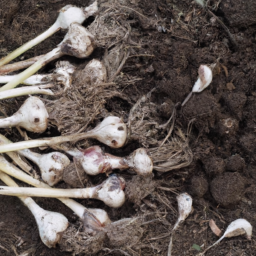
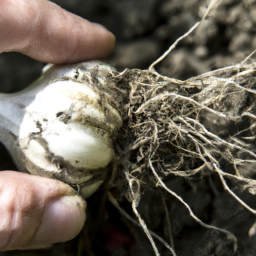
Sustainable garlic farming practices benefit both the environment and your farm's long-term viability. Focus on soil health by practicing crop rotation, using cover crops, and minimizing chemical inputs.
Embrace organic methods and prioritize biodiversity by planting companion crops and supporting pollinators. Additionally, invest in efficient irrigation systems to conserve water.
In conclusion, sustainable garlic farming practices are crucial for Tennessee farmers looking to protect the environment and ensure the longevity of their garlic crops.
Beyond the culinary advantages, growing garlic in Tennessee offers economic benefits. High-quality garlic is in demand at local markets and restaurants, providing opportunities for profitable sales.
Additionally, garlic farming can diversify income streams for small-scale farmers and create local jobs. As consumer interest in organic and locally grown produce continues to rise, garlic presents a lucrative opportunity for Tennessee growers.
In conclusion, recognizing the economic benefits of growing garlic can inspire Tennessee farmers to explore this valuable crop further.
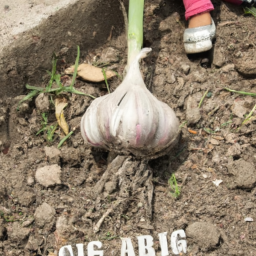
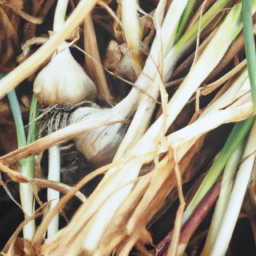
Community Supported Agriculture (CSA) programs can be a fantastic way to promote your Tennessee garlic farm.
Joining or starting a CSA allows you to establish direct relationships with consumers who appreciate the benefits of supporting local agriculture. It's a win-win situation for both your farm and your customers.
In conclusion, embracing Community Supported Agriculture (CSA) can enhance your garlic farming business in Tennessee and strengthen your ties with the local community.
Turning garlic farming into a successful business venture in Tennessee requires careful planning and dedication. Begin by developing a comprehensive business plan that outlines your goals, target market, and financial projections.
Consider diversifying your product range by offering garlic-related products such as garlic powder, garlic-infused oils, or garlic-themed merchandise.
In conclusion, garlic farming can be a viable and profitable business in Tennessee when approached with a strategic mindset and a focus on customer satisfaction.
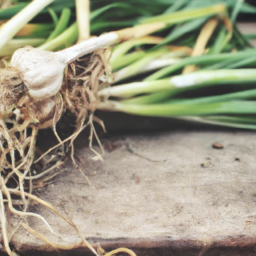
To protect your garlic crop from winter frost in Tennessee, consider applying a thick layer of mulch, such as straw or leaves, around your garlic plants in late fall. This mulch acts as insulation, preventing the soil from freezing and safeguarding the garlic bulbs. In extremely cold regions, you can also use row covers or cloches to provide additional frost protection. Be sure to maintain proper airflow to avoid condensation, which can lead to mold and rot.
Organic garlic farming in Tennessee offers several benefits. It promotes soil health, reduces chemical inputs, and produces garlic that meets high organic standards, appealing to health-conscious consumers. Organic practices also contribute to environmental sustainability by minimizing the impact on ecosystems. Furthermore, the demand for organic garlic continues to grow, making it a profitable venture for farmers who embrace these practices.
Creating a customized garlic planting calendar for your Tennessee location involves considering factors like frost dates, local climate variations, and the garlic varieties you plan to grow. Start by determining the average date of the first fall frost and work backward to establish planting dates. It's important to align your calendar with your specific microclimate and garlic variety requirements, ensuring the best timing for planting and harvesting.